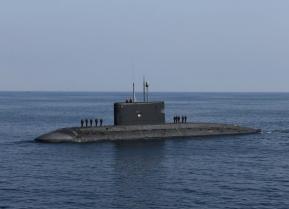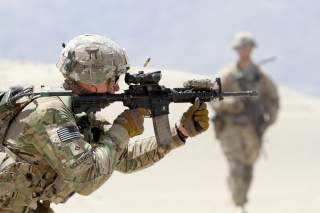Welcome to 2026 (and the U.S. Is About to Invade Iran): Operation Iranian Freedom
"Time to go rally the troops. We cross the line of departure in four hours."
While the average Iranian is no fan of their authoritative, theocratic regime, there is little support for a U.S.-led invasion. I don’t know how our presence will be perceived. The White House has wasted precious few words beyond their policy desire to remove the current regime from power. U.S. policy makers have been working with exiled opposition groups in Paris and London, but it’s questionable whether or not they will be credible with the political elite in Iran, let alone the average citizen on the street. Hopefully the majority of the civilian institutions will remain intact and we will not experience the same environment my father experienced after the Ba’ath party was dissolved in Iraq. My father said in retrospect to ensure continued regional stability we should have pursued a change of command from Saddam Hussein to someone else versus a complete regime change and eliminating the entire Ba’ath Party. It took the U.S. until 2018 to learn this lesson; the Ba’ath party was so well organized and institutionalized across so many layers of society, only they had the ability to quell their radicalized front.
This is all hundreds of miles and many deaths in the future, however. Despite my lofty thoughts, it’s the everyday pre-combat activities that are occupying all my time and energy. I cannot fail. There’s too much riding on my ability to perform better than my peer commanders. While we’ve had female commanders in many other branches since the 1970s, it was only after combat roles were opened to women following Operation Just Recovery that we got our chance to command infantry and other combat troops.
I remember when the first female soldier graduated from the Ranger Course. It was the summer between my freshman and sophomore year of high school. We were stationed at Fort Campbell, Kentucky; my dad was in my granddad’s old unit, the 1st of the 502nd. Granddad was the Brigade XO during Desert Storm. Neither my father nor my grandfather ever thought a woman could graduate from Ranger school; they just did not think that females had enough muscle mass and stamina to compete with the men. I remember the shock on their faces that summer! But, granddad always told me I should try to “be all I could be.” Now, my peers call an assignment to the mechanized infantry unit “the great equalizer” among the sexes; and I agree with them.
As I walk through my company’s assembly area, I face the insomnia and nervousness that millions of people have faced throughout history. I wonder if I have done enough to prepare my soldiers. I wonder how my father and my grandfather felt when they stood on this ground decades ago. I worry that I won’t bring credit upon the U.S. Army, my family, my fellow female commanders, and myself. No matter what the party line is, I know the actions taken by women in Operation Iranian Freedom will receive a high level of scrutiny. While I worry about the second and third order effects in this operation, especially the interactions between Iraq’s Sunni Arabs and the Iranian Shi’ia, I know I can only focus on what I can positively control. I can control my actions, I can influence those around me, and I can set a positive example for my soldiers.
Time to go rally the troops. We cross the line of departure in four hours.
Phil Walter has served in the military, the intelligence community, and the inter-agency. He blogs at www.philwalter1058.com
Diane Maye is a PhD candidate in Political Science at George Mason University.
Nathan Finney is an officer in the United States Army. He tweets @nkfinney.
The views expressed here are those of the authors alone. This article does not contain information of an official nature and does not represent the United States Government, Department of Defense, United States Army, or any other organization.
This piece first appeared in the Strategy Bridge here.


